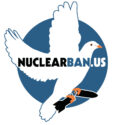Written by Ben Purden
On April 10th, 2019, residents of the town of Montague, Massachusetts, weighed in on a matter of great national and international significance: the abolition of nuclear weapons.
At the annual town meeting, a tradition of direct democracy called “the true Congress” by Henry David Thoreau, Article 38 was passed, creating the resolution “Calling for the US to Join the Treaty on the Prohibition of Nuclear Weapons.”
This resolution takes matters into the hands of local governance. At a time when the United States is withdrawing from international agreements for peace and sustainability, local governments are responding by stepping up.
Recognizing that action must be taken at the highest levels of government, the resolution callson federal leaders to sign the Treaty. Additionally, it calls for passage of legislation supportive of the Treaty at the state level. However, it also calls on the local government to align with the Treaty in its own business, in a move that refers to the potential of grassroots movements pressuring business and government when action is lacking at the top.
“Alignment” with the Treaty has been defined as follows: the prohibition of any and all activity related to nuclear weapons within town limits; the rejecting of contracts with primary weapons contractors, and divestment of town funds from these same companies. The Select Board of Montague is now tasked with finding out how it can align with the Treaty.
Further action at the state level is pending. Bills in the House and the Senate would create a Citizens’ Commission to explore how the Commonwealth of Massachusetts can disentangle itself from the nuclear weapons industry, and what other opportunities that would create, especially for investment in a green new economy.







